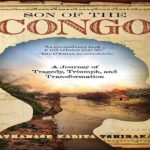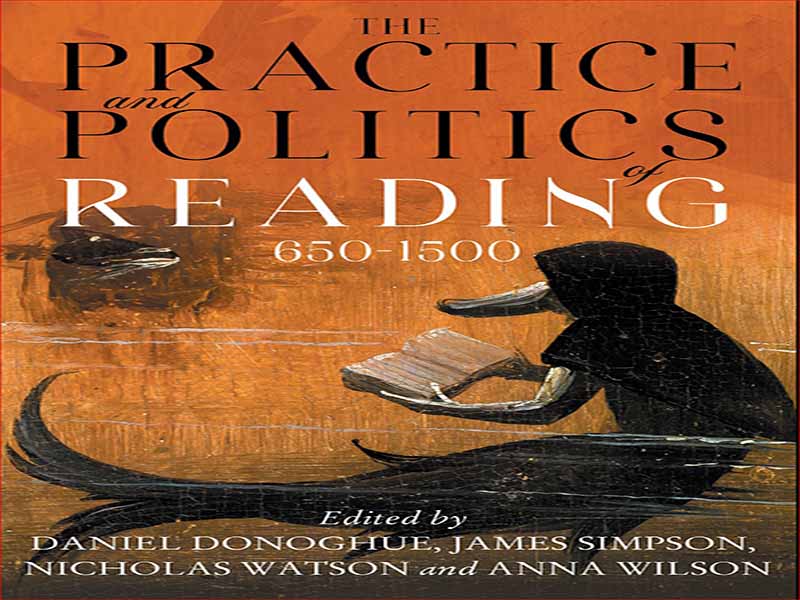- عنوان کتاب: The Practice and Politics of Reading
- نویسنده: Daniel Donoghue
- حوزه: مطالعه
- سال انتشار: 2022
- تعداد صفحه: 355
- زبان اصلی: انگلیسی
- نوع فایل: pdf
- حجم فایل: 17.5 مگابایت
“انقلاب گوتنبرگ” به عنوان سنگ محک برای روشنفکران غربی در بیشتر نیمه دوم قرن بیستم، به ویژه در طول دهه های جنگ سرد عمل کرد. گزارش استاندارد که توسط محققانی مانند مارشال مک لوهان رایج شده است، روایتی آشنا از راهپیمایی پیشرفت را بیان می کند، که در آن اختراع چاپ با خوشحالی اروپای غربی را وارد عصری از دستاوردهای فکری، سیاسی، مذهبی و اقتصادی کرد. با این حال، پیشامدرنیته جهانی هرگز سادهسازی بیش از حد این تاریخ گلدانی را نپذیرفت، و هم از مفروضاتش در مورد تأثیرات مثبت بی چون و چرای رسانه جدید و بهویژه تمام آنها که به طرز عجیبی بر قرنهای پیشین تأثیر میگذارد، نادیده گرفت. ، یک بار دیگر، تاریکی قبل از طلوع مدرنیته را به نمایش بگذاریم. امروز ما در دنیایی از انعکاسهای زمانی زندگی میکنیم: در سه دهه گذشته، ما در یک انقلاب دیگر «رسانههای جدید برای انتقال اطلاعات» در مقیاس جهانی مؤثر غوطهور بودهایم، مانند یک آزمایش فرهنگی گسترده که در زمان واقعی انجام میشود. انقلاب جدید سریع و بیسابقه مستلزم ارزیابی مجدد تقواها و تعصبات مرتبط با انقلاب فناوری اطلاعات در اواخر قرن پانزدهم و شانزدهم با جستجوی آگاهی عمیقتر از جریانهای متضاد مشخصه چنین لحظاتی از تغییرات فرهنگی چشمگیر است، از جمله «اثر فاجعهآمیز». بر جامعه» از نظم جدید. تصور میشد که انقلاب دیجیتال دهه 1990، همانطور که انقلاب چاپی و انقلاب معاصر آن، اصلاحات پروتستانی، هنوز هم اغلب ادعا میشود که باعث ایجاد خیر و صلاحیت بیشتر خوانندگان با دسترسی به طیف گستردهتری از مطالب خواندنی شده است. برای مثال، خواندن بدون واسطه کتاب مقدس، مشابه خود را در دسترسی فوری به اطلاعات دیجیتال می یابد. پیروان انقلاب دیجیتال هنوز با اعتماد بینظیر ستایش جان فاکس از چاپخانه در اعمال و یادبودها صدا میزنند، که به موجب آن «دانش رشد میکند، قضاوت افزایش مییابد، کتابها پراکنده میشوند. . . داستانها باز میشوند، زمانها مقایسه میشوند، حقیقت تشخیص داده میشود، اشتباهات غلط کشف میشوند.» خوش بینی مرحله اول انقلاب دیجیتال کاملاً بی اساس نبود. در دهه 2020، این رویای دنیایی که از طریق فنآوریهای خواندنی جدید به سمت بهتر تغییر شکل داده است، هنوز در سرزندگی بیشمار جوامع آنلاین کتابخوانی که این فناوریها را به سمت بیان جمعی، تشکیل جامعه، کنشگری و لذت سوق دادهاند، تحقق بخشیده است. هر چقدر هم که ممکن است از روشهایی که ظاهراً اینترنت خود را به تمام جنبههای زندگیمان تلقین میکند خسته شده باشیم، اکثر ما که به آن دسترسی داریم هنوز از آن برای جستجوی پیشبینی آبوهوا، بررسی عزیزان، و دیدن اینکه مردم چگونه به آن دسترسی دارند استفاده میکنیم. با یک یا آن مشکل عملی برخورد کرد یا دور از دفاتر کار کرد. این کتاب که عمدتاً در طول ماههای طولانی بیماری همهگیر نوشته شده بود، زمانی که مشارکتکنندگان و ویراستاران هرگز همدیگر را ملاقات نکردند، نمیتوانست بدون اینترنت کامل شود.
The “Gutenberg Revolution” served as a touchstone for western intellectuals during much of the second half of the twentieth century, especially during the decades of the Cold War. The standard account, popularized by scholars such as Marshall McLuhan, tells a familiar march-of-progress narrative, in which the invention of printing happily launched western Europe into an era of intellectual, political, religious, and economic achievement.2 Scholars of European and global premodernity, however, never accepted the oversimplifications of this potted history, and chafed both at its assumptions about the unequivocally positive effects of the new medium and especially at all it incuriously projects onto earlier centuries, which in popular and learned accounts have been obliged, once again, to represent the darkness before the dawn of modernity. Today we inhabit a world of temporal mirroring: for the past three decades we have been immersed in another revolution “of new media for the transmission of information” on an effectively global scale, like a vast cultural experiment taking place in real time.4 This unprecedentedly rapid new revolution demands a reassessment of the pieties and prejudices associated with the information-technology revolution of the late fifteenth and sixteenth centuries by seeking a deeper awareness of the counter-currents characteristic of such moments of dramatic cultural change, including “the cataclysmic effect on society” of the new order. The 1990s digital revolution was thought to generate, as the print revolution and its contemporary, the Protestant Reformation, is still often claimed to have generated, the unqualified good of more readers with access to vastly wider ranges of reading material. The unmediated reading of scripture, for example, finds its parallel in the immediate access to digital information. Paeans to the digital revolution still ring with the unqualified confidence of John Foxe’s praise of the printing press in Acts and Monuments, whereby “knowledge groweth, judgement increaseth, bookes are dispersed . . . stories be opened, times compared, truth decerned, falsehode detected.” The optimism of the first phase of the digital revolution was not wholly unfounded. In the 2020s, this dream of a world transformed for the better through new reading technologies still finds partial realization in the immense vitality of online reading communities, who have wrested these technologies towards collective expression, community-formation, activism, and pleasure. However weary we may have become with the ways in which the internet seemingly insinuates itself into every facet of our lives, most of us with access to it still use it to look up the weather forecast, check in on loved ones, see how folk have dealt with one or another practical problem, or work away from our offices. This book, largely written during the long months of pandemic when the contributors and editors never met, could not have been completed without the internet.
این کتاب را میتوانید از لینک زیر بصورت رایگان دانلود کنید:
Download: The Practice and Politics of Reading



































نظرات کاربران